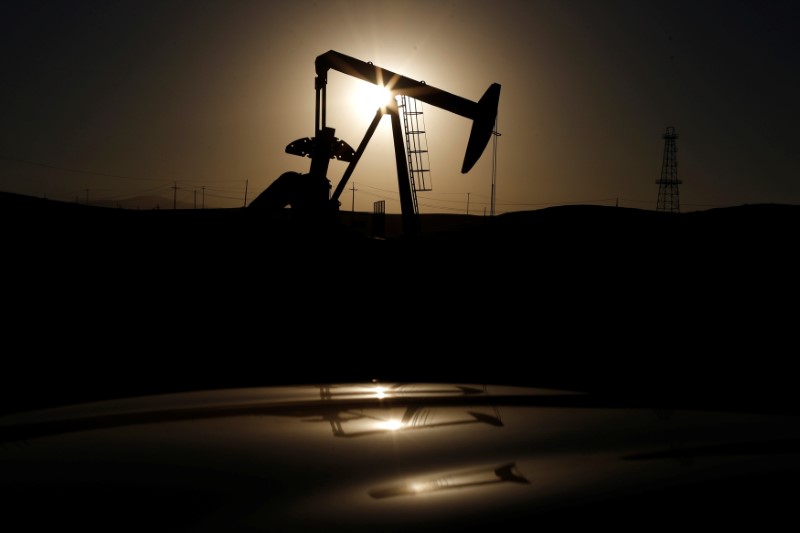By Henning Gloystein
SINGAPORE (Reuters) - Oil prices rose on Friday as U.S. crude production was hit harder by Hurricane Harvey than expected, with even bigger storm Irma heading for Florida and threatening to cause more disruption to the petroleum industry.
U.S. West Texas Intermediate (WTI) crude futures were at $49.21 barrel at 0406 GMT, 12 cents above their last settlement.
Brent crude futures, the benchmark for oil prices outside the United States, were up 24 cents to $54.73 a barrel, after reaching a session high of $54.79 a barrel, their highest level since April.
Hurricane Harvey hit the U.S. Gulf coast two weeks ago, and crude prices initially slumped because almost a quarter of the country's huge refinery industry was knocked out by the storm, cutting demand for crude oil, refining's lifeblood.
But as the refinery sector gradually recovers, so is its crude processing, shifting the focus to oil production.
But data shows Harvey's impact was also felt there. U.S. oil output fell by almost 8 percent, from 9.5 million barrels per day (bpd) to 8.8 million bpd, according to the Energy Information Administration (EIA).
Port and refinery closures along the Gulf coast and harsh sea conditions in the Caribbean have also impacted shipping.
"Imports (of oil) to the U.S. Gulf Coast fell to levels not seen since the 1990s," ANZ bank said.
Traders said it would take weeks for the U.S. petroleum industry to return to full capacity, and that under the current conditions it was difficult to identify fundamental market trends.
"The data for this week and next will be taken with a grain of salt as the underlying trend will be obscured by the effects of the hurricane," said William O'Loughlin, investment analyst at Rivkin Securities.
Even as the oil industry continues to grapple with the fallout from Harvey, a much bigger Hurricane was lashing the Caribbean islands and heading for the United States.
Hurricane Irma, which has become one of the biggest storms ever measured - picking up the Twitter hashtag #irmageddon - early on Friday was over the Dominican Republic and Haiti, heading for Cuba and the Bahamas. It was predicted to hit Florida on Sunday or Monday.

The U.S. National Hurricane Center (NHC) said that Irma was still a Category 5 Hurricane, with wind speeds of 175 miles per hours (280 km/h).